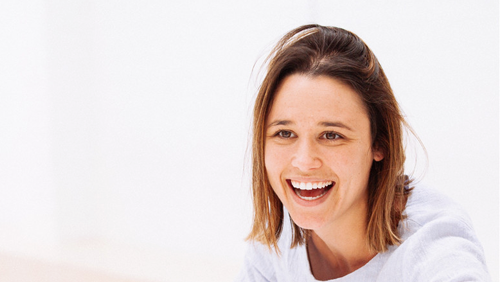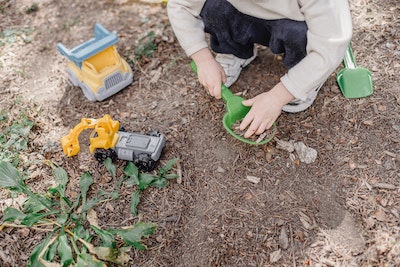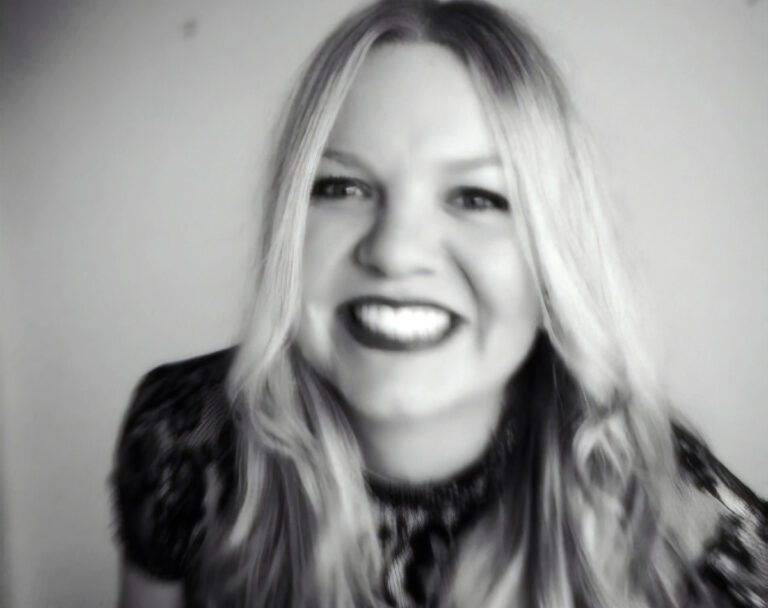What began as Hugh van Cuylenburg practicing his interview skills on his wife Penny Moodie quickly became one of the most popular and widely shared podcast episodes in The Imperfects history — thanks in no small part to Penny’s vulnerability in sharing her lifelong journey with obsessive compulsive disorder (OCD).
“I remember as a really young kid, I was worried about my parents dying,” Penny shares.
“If they went out for dinner and we had a babysitter, for example, I’d get this thought that they’ve been in a car crash. Then it would spiral into, ‘They’re going to die unless I do these certain kinds of rituals’, so it’d be like knocking on wood, certain things that I have to say before I went to bed, to make sure they wouldn’t die.”
Penny talks about how often OCD obsessions will reflect society’s anxieties and fears of the time, noting that there was a huge spike in syphilis-related obsessions in the 1920s and HIV/AIDS obsessions in the 1980s and 1990s.
“I was very much worried that I had HIV/AIDs,” Penny says. “I was nine.
“That’s the thing, OCD isn’t logical… if there’s a 0.00001% chance I’ve got something, I’ll worry and worry and worry.”
Penny talks through the difference between obsessions (intrusive or unwanted thoughts) and compulsions (the action you take to try and rid yourself of the obsession).
“For a lot of people, it is cleanliness,” Penny says. “Your obsession is you’re gonna get a disease and so then the compulsion would be to wash your hands. That’s the kind of classic example used in movies and TV shows when they have decided to portray OCD, because it’s awful but it’s kind of palatable; it’s not too confronting.”
Yet, as Penny says, often obsessions can be a lot more serious, including intrusive thoughts about harming other people, harming your children or wanting to harm yourself.
“If you’ve got OCD, it’s like that will pop into your head and then that will distress you so much, you start to think ‘that must mean I want to hurt my child’,” she says.
“I just want to make it clear that no one who suffers these things is ever going to act on any of these thoughts. It’s actually the opposite — I think they call it ego-dystonic thoughts or something when you’ve got these intrusive thoughts that are really counter to how you want to see yourself and how you want others to see yourself. They really go against your values and that’s what makes them so distressing.
“It means for a lot of people, you don’t seek help because you’re just so embarrassed to have these thoughts.”
Penny also generously shares some of her own obsessions, some of which even surprise Hugh. However, since finding a psychologist who specialises in OCD in Melbourne, Penny says her OCD flare ups have become less frequent.
“It’s the best thing I’ve ever done,” she says. “It’s pretty full on …She does what’s called Exposure and Response Therapy and it’s very uncomfortable but it’s all about sitting with uncertainty and learning to sit with your fears.”
At the time of recording, Hugh and Penny’s daughter Elsie was only eight weeks old and Melbourne was in lockdown. Hugh asks Penny whether the stress of having a newborn and a toddler confined to the house has made her OCD get worse.
“I think the real change has been seeing my psychologist for a year and a half before this time and that really set me up for being able to deal with it, even in stressful times,” Penny says. “So I haven’t spiralled when usually I would. I actually feel ok. I think there are times when I felt really tired and really drained and there are certain thoughts that come up but they haven’t really taken hold like they usually would. And that’s not to say it’s gone away but it’s just how it is for me right now and I’m grateful.”
Penny’s top tips for managing obsessive compulsive disorder:
- Don’t settle for a psychologist who doesn’t understand the condition: “I know people who work in that industry and my dad is a doctor and even then, it was so hard to find someone so I can’t imagine for some people how difficult it is … but if you can, do your research and try to find someone who specialises in it.”
- Accept that it’s a part of your life but it doesn’t have to control it: “When I was younger, I used to think ‘this will go away when I’m older’ and I’ve kind of come to the realisation that it will never really go away. It’ll get better and then sometimes it will get worse but I just have to learn to manage it. So that’s a pretty awful realisation but once you accept it, it becomes a bit easier.”
- Encourage people, especially young people, to talk about it: “If there are any parents out there who are worried that maybe their kids are going through this, I really suggest trying to talk about it with them. It’s something that can be shut away and if they can start talking, at least to you, about it and you’re holding a really open, non-judgemental space for them and then encouraging them, when they’re ready, to speak to a professional, it’s just going to make all the difference in the long run.”






